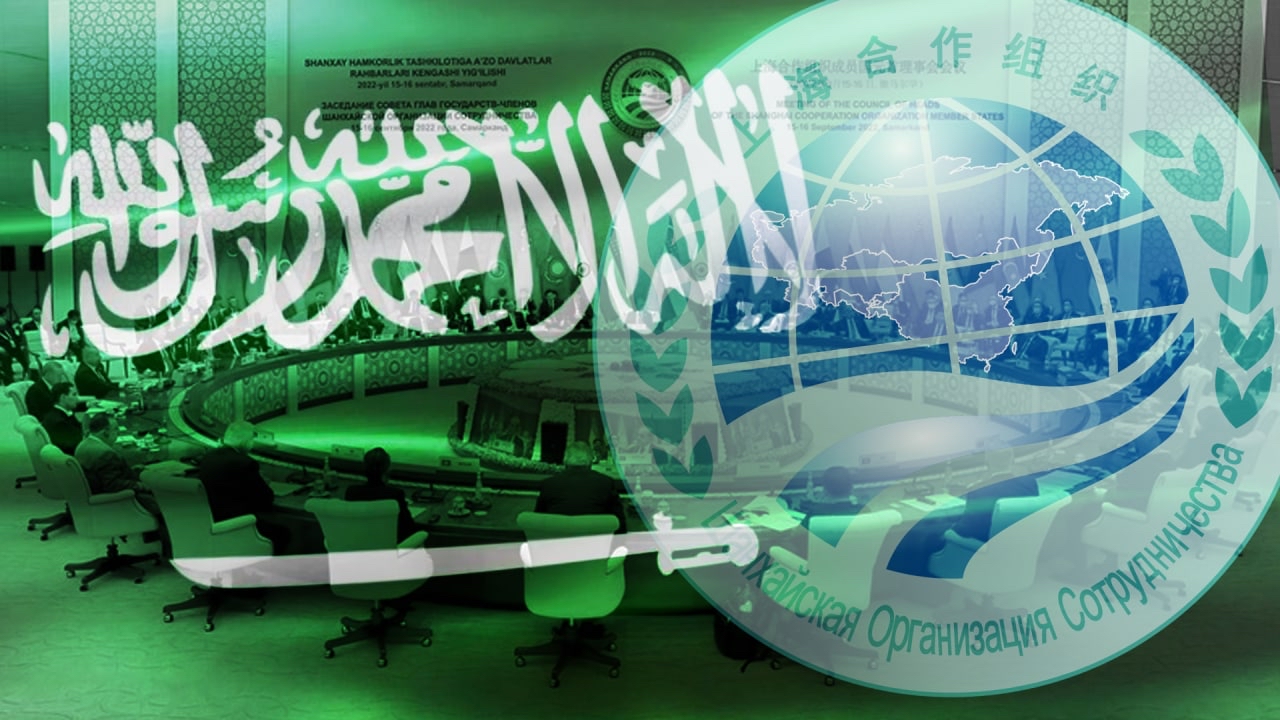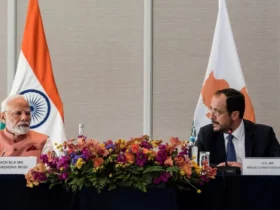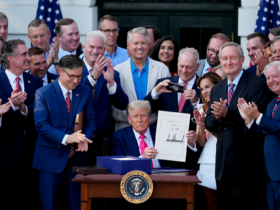Shanghai Cooperation Organization (SCO) is breaking new ground every day, developing constantly towards becoming an important player in the world, which many expect to become a multipolar one in the near future.
The organization was formed in 2001, and included Russia, China and 4 Central Asian countries: Kazakhstan, Uzbekistan, Tajikistan and Kyrgyzstan. India and Pakistan joined in 2017.
There are 3 countries that are candidates to join, such as Iran, Mongolia and Belarus. There are countries have the status of “dialogue partner”, such as Türkiye, Turkmenistan, Azerbaijan, Armenia, Cambodia, Nepal and Sri Lanka.
Arab countries joined this list for the first time: Saudi Arabia, Egypt, Qatar, Emirates, Kuwait and Bahrain.
Encouraging goals & visions
Although this organization was founded with Chinese support and initially appeared as an Asian group representing oriental civilizations, its development, goals and visions encourage many countries to join it, especially those that see the decline of the world dominated by the United States as the single pole.
Important countries with complex, diverse and extensive interests can no longer bet on a single superpower to achieve their interests. Among these countries is Saudi Arabia.
Saudi Arabia is the largest Arab country in terms of area, and represents the most important major country in the Islamic world as the home of the Two Holy Mosques.
The moral and spiritual influence of the Kingdom extends east and west, backed by unlimited economic influence, as it is the largest oil exporter in the world and plays an important role in determining energy prices in a way that cannot be ignored or denied.
However, the Kingdom’s major influence for its political and economic role in maintaining stability in the region with its Gulf and Arab neighbours faces subversive roles or competition from regional and international players.
Therefore, preserving Saudi interests requires expanding Riyadh’s partnerships with all influential powers, whether countries or organizations.
With Washington’s withdrawal from the Middle East region and its pivot to Asia, the Kingdom believes that it is no longer possible to be satisfied with the alliance with the United States, which has been going on for decades. Not only that – Riyadh can no longer feel comfortable with US policies regarding Iran, especially the nuclear deal.
Riyadh questioned the feasibility of relying on Washington in maintaining stability in the Middle East, after its role in supporting the revolutions known as the Arab Spring.
Since the first sparks, the politically conservative kingdom looked at these revolutions and their goals with suspicion, and feared their consequences for the stability of the Arab world.
With time, the fears of the Kingdom became reality, as these revolutions did not lead to any form of reform, but rather caused humanitarian disasters that could only be dealt with at great cost and over many years.
More importantly, those revolutions were the backdoor for sabotage hands from outside the region to tamper with Arab national security, especially in countries on the borders of the Kingdom such as Yemen and Bahrain.
The Kingdom’s opponents, namely Iran, were the biggest beneficiaries of the power vacuum in the countries of the Arab Spring, as the influence of Tehran and its proxies grew in Yemen, Lebanon and Syria.
Diversify alliances
With the ongoing Saudi-American dispute over many issues related to regional security, it seemed important to the decision-maker in the Kingdom to diversify his alliances and spheres of influence.
The Kingdom, dissatisfied with its traditional alliances with the West, sought to activate its roles at the international level. Since King Salman’s accession to the throne, the kingdom has revitalised its relations with Eastern countries, as major Asian capitals have witnessed important visits by the King or his Crown Prince, Mohammed bin Salman.
The Kingdom also led to the OPEC+ agreement, which included large oil-producing countries such as Russia, to coordinate oil production with OPEC, in order to ensure the stability of energy markets.
Under the influence of an active Saudi foreign policy, the Kingdom could not ignore the SCO.
Saudi Arabia has stayed away from the organization for a long time as not to upset its main security ally, Washington. But in light of the geopolitical changes that the Kingdom has read well, Saudi Arabia saw the need to join the emerging organization, for 2 reasons:
- Diversifying Riyadh’s alliances in light of a world that is rapidly moving towards multipolarity.
- The organization’s seriousness and objectives, which focus largely on open cooperation in many areas.
Polarization bypass
According to a former diplomat, the world has transcended the unipolar and even multipolar idea, and Saudi Arabia is fully aware of this.
“The kingdom’s foreign policies are extremely realistic. The Kingdom wants to play an influential role in transcending situations of international polarization in a manner that protects its interests and the interests of its people”, he said.
The former diplomat pointed out that Riyadh’s accession to SCO could be seen in the context of active foreign policy and openness to all countries and international organizations.
“The organization is an Asian and Eastern grouping. Saudi Arabia is also an Asian and eastern country and has interests with the countries of the continent to which it belongs. The Kingdom has the right to join any organization that it sees as achieving its interests and goals”, he said.
In response to a question of whether Saudi Arabia’s participation in the organization is related to Iran’s membership, along with a desire to neutralize Tehran’s influence on member states in matters that affect the interests of the Kingdom, he pointed out that it is not possible to link these issues.
“However, it is certain that the Kingdom is a big country that is open to everyone and does not engage in polarization games”, he said.
“The world is going through a phase of political and economic pressures that no country or region can confront alone. SCO provides an important international framework in which its members can coordinate and cooperate on many economic, political and security issues, especially in the field of combating terrorism”, he continued.
Economic potentials
According to an informed source, SCO is a bloc with great economic potentials.
“Riyadh is aware of the growing role and influence of the organization in the future, and desires to strengthen its economic partnerships with itself and with its countries. Joining it represents a Saudi openness to the future”, the source added.
The source pointed out that the organization is not a military bloc like NATO, but an organization for cooperation between countries that refuse to interfere in the internal affairs or sovereignty of any country under any allegations.
“This principle, supported by the organization, is one of the principles of the Kingdom, which has long denounced the interference of external forces in the affairs of its Arab neighbours. Thus, the consensus of principles was encouraging for the Kingdom to become a member of the organization”, the source said.
In my opinion, the Kingdom’s accession, even as a “dialogue partner” to SCO, represents an opening to the organization’s promising future as a political and economic forum.

















Leave a Reply